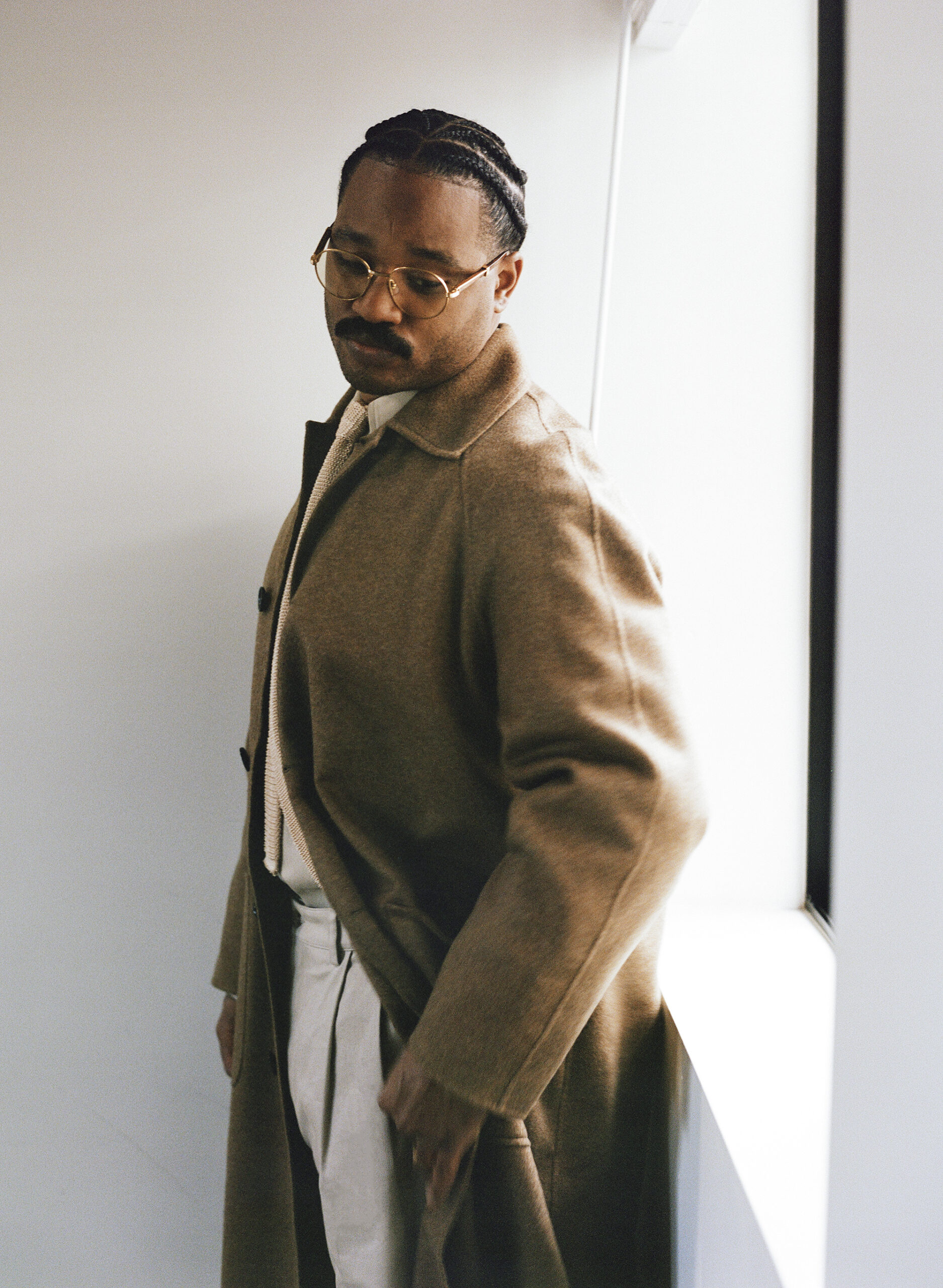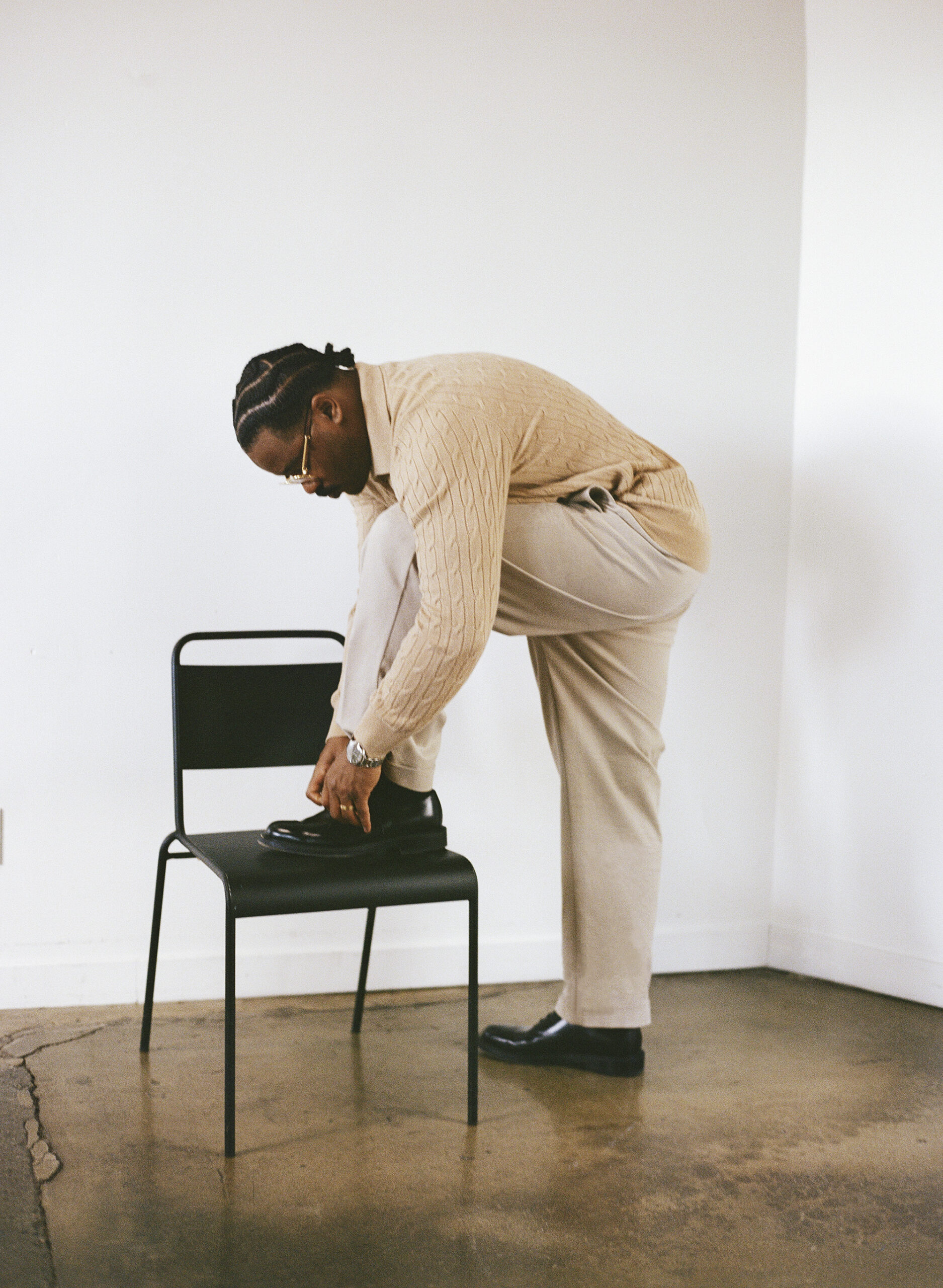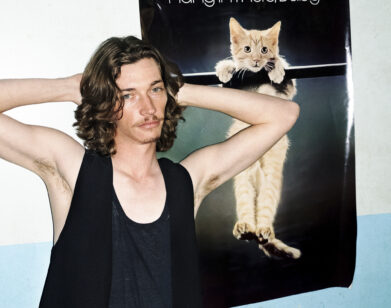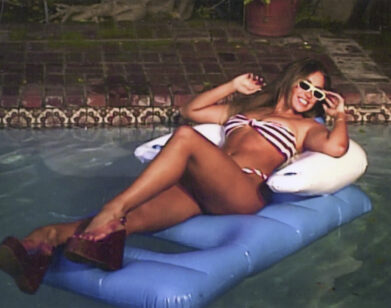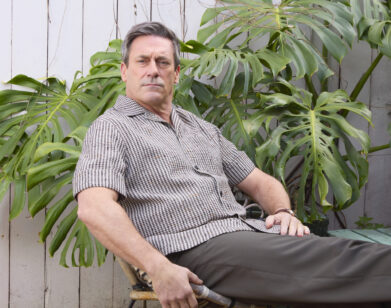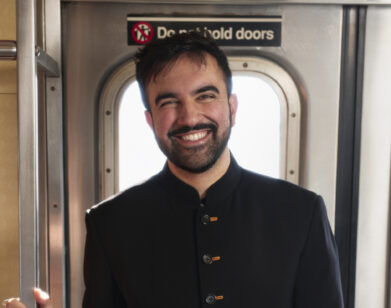DIRECTOR
Ryan Coogler Tells LeBron James Why Sinners Is His Most Personal Movie Yet
Ryan Coogler delivers—whether it’s the gut punch of Fruitvale Station, the body shot of Creed, or the seismic impact of Black Panther. His mix of sharp filmmaking, personal storytelling, and pure instinct has earned the Oakland native rare creative freedom in Hollywood. He’s using it on Sinners, an original action-horror film starring Michael B. Jordan as identical twins confronting a sinister force in the Jim Crow South—a move only a select few at the top of their industry can pull off. Another one of them? A basketball player named LeBron James, who knows plenty about dominating his field and rewriting the playbook.
———
MONDAY 5:30 PM FEB. 17, 2025 PRUNEDALE, CA
RYAN COOGLER: What’s up, sir?
LEBRON JAMES: What’s up, baby?
COOGLER: You been okay?
JAMES: I’ve been good. How are you?
COOGLER: I’m good, bro. I got nervous when I seen you wasn’t playing in the All-Star Game. I’m hoping it’s just a little maintenance.
JAMES: It’s just a little precautionary shit for this last stretch run.
COOGLER: Good, bro. I’m getting tired of you beating up on my n*ggas.
JAMES: [Laughs] It’s Draymond [Green]’s fault. Draymond’s always talking shit. Where you at?
COOGLER: I’m not even sure, bro. Me and Zin [Zinzi Coogler, Ryan Coogler’s wife] went up the coast for Valentine’s Day and we’re driving back now and hit all kinds of crazy traffic. I realized I wasn’t going to make it back in time so we just pulled over where we had good service. I think we’re in a town called Prunedale. We in a strip mall, bro.
JAMES: [Laughs] Shit.
COOGLER: We by an O’Reilly Auto Parts and a smoke shop, but we gonna make it work.
JAMES: [Laughs] For sure. Tell the missus I said what’s happening.
COOGLER: Yeah, bro.
JAMES: So Ryan, this is your first horror film. What made you want to dive into that genre?
COOGLER: I always liked genre movies. One of my favorite things to watch as a kid was The Twilight Zone. Did you watch that coming up?
JAMES: We watched it, too.
COOGLER: And coming up in Oakland—we talk about this a lot, how Akron and the Bay have a lot of connections, culturally.
JAMES: Yep.
COOGLER: I had older cousins and one of their favorite things to do was show me A Nightmare on Elm Street and freak me the hell out. The Jason movies, too. I think in Black culture, especially coming up at that time, there was an appreciation for horror.
JAMES: Yeah.
COOGLER: Then something happened in the ’90s, where—I talked to Jordan Peele about this—but everything was in the hood, you feel me? It was Tales from the Hood, Candyman, even the Leprechaun movies. They had Leprechaun in the hood, bro.
JAMES: Yep.
COOGLER: Shit, Bron. I loved them. It was something I connected with even before I knew I wanted to make movies, but once I went to film school, I started to make the things that could easily access what was in my heart. That ended up being dramas.
JAMES: Right.
COOGLER: From there I ended up making my first film, Fruitvale, a socially conscious drama. My heart was there, but my heart even before I knew I wanted to make films was in these kinds of genre movies.
JAMES: Fruitvale has horror moments, but they’re real-life horror moments.
COOGLER: Absolutely.
JAMES: When it comes to real life and the supernatural, which one scares you the most?
COOGLER: Oh, real life, bro. [Laughs]
JAMES: No question.
COOGLER: Give me a ghost or vampire all day over what can happen to you in real life. In many ways, Fruitvale was our collective worst nightmare.
JAMES: Yep.
COOGLER: Only as I’ve gotten older and started a family can I look back and realize just how horrific that situation was, and situations like that. A young man had his life taken from him by somebody who was paid to protect him. With Sinners, it’s not based on anything that really happened, and we had so much fun making it.
JAMES: For sure. The thing that viewers are gonna be able to see is that, from Fruitvale to Creed to Black Panther to Sinners, there’s one common denominator, and that’s Michael B. Jordan.
COOGLER: Yeah.
JAMES: And in this movie, he’s playing twin brothers. Were there moments during filming that were tripping you out, seeing him play two guys at one time? What were the challenges on set with him having to play twins?
COOGLER: It was incredible seeing him do it. I think it’s his greatest acting challenge yet. I say that having been there to see him level up each time. Fruitvale was his first time in a movie.
JAMES: Yep.
COOGLER: With Creed, we put him through the ringer not only dramatically, having to act across Sylvester Stallone and having to carry the legacy of Carl Weathers, but also the athletic portion of it—him having to change his body and learn how to fight and be in there without a stunt double. And with Black Panther, just upping the ante again with a character like Killmonger and putting him through all the special effects, the superhero suits. But this was a challenge I had never put on any actor, bro. There’s nothing supernatural about the characters he’s playing. They’re just biological identical twins.
JAMES: Right.
COOGLER: They’re two people that have an incredibly symbiotic relationship, but they’re different individuals. Each person informs the other. We reached out to a couple of filmmaker friends of mine who are identical twins named Noah and Logan Miller. They were our twin consultants, in terms of getting into the psychology of how they think, how they move, how when they’re separate, the differences become more highlighted.
JAMES: Right.
COOGLER: Mike took it all on, bro. I had never seen anything like it. And you used to play football, bro. When you played, did you play both ways?
JAMES: Yep.
COOGLER: You were playing wideout and tight end?
JAMES: Nah. I played wideout and free safety.
COOGLER: Oh, wow. So you know that vibe where you don’t come off the field.
JAMES: Exactly.
COOGLER: That’s the closest thing to what he was doing. Where he was never really able to come off the field. Obviously you know Mike well. I think you’re going to be real proud of him when you see it, bro.
JAMES: I know that for sure, being a big fan of your work, and then just being homies and whatever the case may be. Always supporting one another. My question now is, what conversation do you want people to have when they leave the theater?
COOGLER: I want people walking out of the theater and thinking, “Man, I had a full meal. They really care about the medium.” Everybody on the project knew that this was going to theaters. They all care about seeing movies on a big screen and what it feels like when you see a good one, you know what I’m saying?
JAMES: Yep, for sure.
COOGLER: There’s also a cultural aspect to it that I think people might vibe with. The film is about generations that came before us, being set in the 1930s. What I learned through the process of researching this was, that culture, those people from the Great Depression, they really dictated what was cool at that time, and it remains what’s cool to this day.
JAMES: Yep.
COOGLER: So many stylistic things and phrases and ways of looking at the world, it permeates society to this day. It’s our grandparents, right? Our uncles and all that. What they thought was cool is what we think is cool. You feel me? All that is in this movie.
JAMES: For sure. You just brought up the word culture, and how we grew up. You growing up in Oakland, me growing up in Akron, there’s so much culture, but Oakland is a much bigger city than my hometown. When I think about Oakland—the history, the culture, the adversity—how did that shape your storytelling, the way that you direct, and the way you think when it’s time to put the pen to the pad?
COOGLER: It’s all there. This story came from that. My family has been in Oakland since the ’40s. It’s been several generations in the city, and with that second wave of the Great Migration came so many things. In that little amount of time, from the ’40s to about the ’60s, Oakland quickly became a Black city, to the point where you can’t help but think about Black people when you hear its name.
JAMES: No question.
COOGLER: For me, the movie started with my relationship with my uncle who is from Mississippi. He was the older male figure in my life. The only music he would listen to is the blues, bro. We was listening to everything from Too Short to Tony! Toni! Toné!, but he would only listen to the blues. I would sit there with him and he would talk about Mississippi and how he came up and how that influenced everything that we was on now. When I was working on Creed in 2015, he passed away. I had already made a film about the Bay with Fruitvale, I was making a movie about Philly, I made a couple of movies about Wakanda, and now I’m coming back home in a different way. I’m looking at the American South, which is, outside of the continent of Africa, where Black people call home. Where was your people at before they were in Akron?
JAMES: Man, they probably were all over. My mom speaks about people being down in Macon and Savannah, then migrating up north after slavery.
COOGLER: Yeah, bro. It’s a portion of our collective history that we tend not to think about. Oftentimes we’ll look at it with a little bit of shame, you know what I’m saying? Because of the circumstances when our ancestors left. For me, it was really fulfilling to tell that story, bro.
JAMES: For sure. Listen, your movies are all different, but they all have a strong emotional core. How are you able to make them feel so damn big, but intimate at the same time?
COOGLER: It’s definitely something that I’m trying to do. A lot of it comes from being an athlete, bro. That’s what I was before I was a filmmaker. You’re obviously one of the most incredible athletes to ever draw breath, but I didn’t get to those heights. The last time I played was in college.
JAMES: Right.
COOGLER: I would have these massive games—for instance we played Cal one year, against Marshawn [Lynch] and DeSean Jackson, and it was 67,000 people in the stands at Berkeley. When they were screaming you could feel your face mask shaking.
JAMES: Yep.
COOGLER: But somehow this game comes down to one or two plays, where the world somehow shrinks, bro.
JAMES: No question.
COOGLER: At the same time, it’s still 67,000 people watching. I get goosebumps just thinking about this shit. To me, that’s what filmmaking is. I got the whole movie, but it’s really built up out of microscopic moments. If you squint, it’s built up out of what we call beats.
JAMES: Yeah.
COOGLER: I’m constantly looking at the small things, and then I’m zooming out. You never want to get caught looking at one perspective for too long, because then you play yourself. You feel me?
JAMES: For sure. When Black Panther came out, that shit was a movement. What was the moment when you knew it was bigger than just a movie?
COOGLER: To be honest with you, Bron—and it’s one of my great regrets—I was so young while we were making it, and so stressed out, that I didn’t appreciate what was happening, man. There were a few moments where I’d be like, “Oh man, this shit is getting crazy.”
JAMES: [Laughs]
COOGLER: For instance, Kendrick [Lamar] was supposed to do a song, so he and Dave Free came by and watched a bit of footage, and then bounced. Then a few weeks later they hit me back like, “Hey man, come listen to the music,” and they had a whole damn album.
JAMES: [Laughs].
COOGLER: Each song had a reference to the movie. I’m like, “Man, this n*gga just wrote this.” And then on set, Chadwick [Boseman] was doing incredible work every day, Mike was doing incredible work every day, but I couldn’t appreciate the moment.
JAMES: That makes sense. You were too engulfed.
COOGLER: I was dealing with impostor syndrome.
JAMES: For sure. You built your company Proximity Media to be able to work on your own terms. My question for you is, what did you want to do differently from the mainstream Hollywood system and how they run things?
COOGLER: That’s such a great question. Our whole ethos was bringing people in closer proximity to subject matter that’s often overlooked. There’s another facet to that, too. We believed in the theatrical experience.
JAMES: Yep.
COOGLER: We launched a company
before the pandemic hit us and changed the world and the industry with it, but it’s that idea of when you sit in a movie theater and you have an experience with strangers. You sit next to somebody who you might not know, but your elbow is bumping them, and you’re all reacting, all laughing, all crying. That’s putting you in proximity with other human beings.
JAMES: Right.
COOGLER: Then in terms of functioning as a company, we just want to support people in making difficult things. Like with Space Jam[: A New Legacy]. What a challenge that was to work with you, one of the biggest athletes on the planet, to make a whole movie in the off- season that’s about Black fatherhood. And then see you go off to go win a championship, you know what I’m saying?
JAMES: Yep.
COOGLER: That’s what we about, bro.
JAMES: I got a couple more questions for you and then I’m going to let you get on the road. You mentioned fatherhood. You being a dad now, how has that changed the way you see your work?
COOGLER: I’m trying to be more conscious of my health and making sure I’m taking care of that, because there was a time where I’d work on a project and let myself go. Nothing mattered but the project. Now, with these little ones, it goes beyond that.
JAMES: For sure.
COOGLER: It’s been a pleasure seeing you navigate that so well. And now I look at every project differently. It’s crazy because I’m making a movie that my kids can’t watch for 100 years, bro. This movie is so rated R.
JAMES: [Laughs] Right.
COOGLER: It’s made everything richer. I’m a better filmmaker because I’m a dad, for sure. I got to imagine you got more dangerous on that court once you had them kids, right?
JAMES: Absolutely.
COOGLER: You felt the switch.
JAMES: Yep. I know you don’t think about this type of shit; I don’t never think about this type of shit. The word legacy is always brought up.
COOGLER: Yep.
JAMES: I want to know if you think about it—and in about 50 years or 100 years, when your kids or your grandkids will finally be able to see Sinners—how do you want people to remember you?
COOGLER: I’m trying not to get emotional thinking about that shit, bro. I am thinking about that concept more, not in terms of reflecting on my legacy, but in terms of starting to do the math and saying to myself, “Man, I’ve been doing this for a while.” A couple of years ago, I realized I’ve been a filmmaker longer than I had played football, and football had been my identity.
JAMES: Right.
COOGLER: Look, bro, we came out of high school the same year. When I’m seeing you start to have conversations about legacy, I’m like, “Goddamn. Where did the time go?”
JAMES: [Laughs] Yeah.
COOGLER: I remember hearing about this dude coming up out of Akron. He’s on the cover of Slam. How did we get to the point that I’ve been a pro filmmaker for 10-plus years and he’s out there playing with his son?
JAMES: [Laughs] Right.
COOGLER: You realize that it goes like that. For me, what I care about the most is that I treated people with dignity and that I was kind. You know what I’m saying?
JAMES: Yep.
COOGLER: That’s something I’m slowly watching being lost.
JAMES: Especially right now, man. Just being kind to motherfuckers.
COOGLER: Yeah, bro. Coming up in places like we from, kindness did not mean weakness. Kindness was a survival tactic, bro. You couldn’t just be walking around bullying everybody or treating people as if they have no value.
JAMES: Yep, or consequences are going to come from it. Listen, I don’t want to have you drive and think about legacy and shit right now, so I got five quick-strike questions, easy as fuck. You ready?
COOGLER: I’m ready.
JAMES: Pizza or wings?
COOGLER: Pizza.
JAMES: Prince or Michael Jackson?
COOGLER: If I got to the whole catalog, I’m going Mike. If I just got to pick a song, I’m going Prince.
JAMES: Ice cream or gelato?
COOGLER: Ice cream.
JAMES: R&B or rap?
COOGLER: You killing me, bro. R&B.
JAMES: The last one. Italian food or sushi?
COOGLER: Sushi, easy. I’m from California, baby.
JAMES: Man, listen. I’m looking forward to seeing Sinners. I’ve loved everything that you’ve done.
COOGLER: Man, I can’t wait to show it to you, Bron. I can’t wait. I think you’re gonna dig it.
JAMES: I know I am. I already know what type of work you put into your shit. You ain’t never let me down, so I ain’t worried about that.
COOGLER: I appreciate you, bro, for real.
JAMES: All love, and safe travels. We’ll talk soon.
———
Grooming: Tasha Reiko Brown using Boy De Chanel at The Wall Group.
Fashion Assistant: Sydney Engelhart.
Production Management: Cecilia Alvarez Blackwell.
Location: Quixote Studios.

